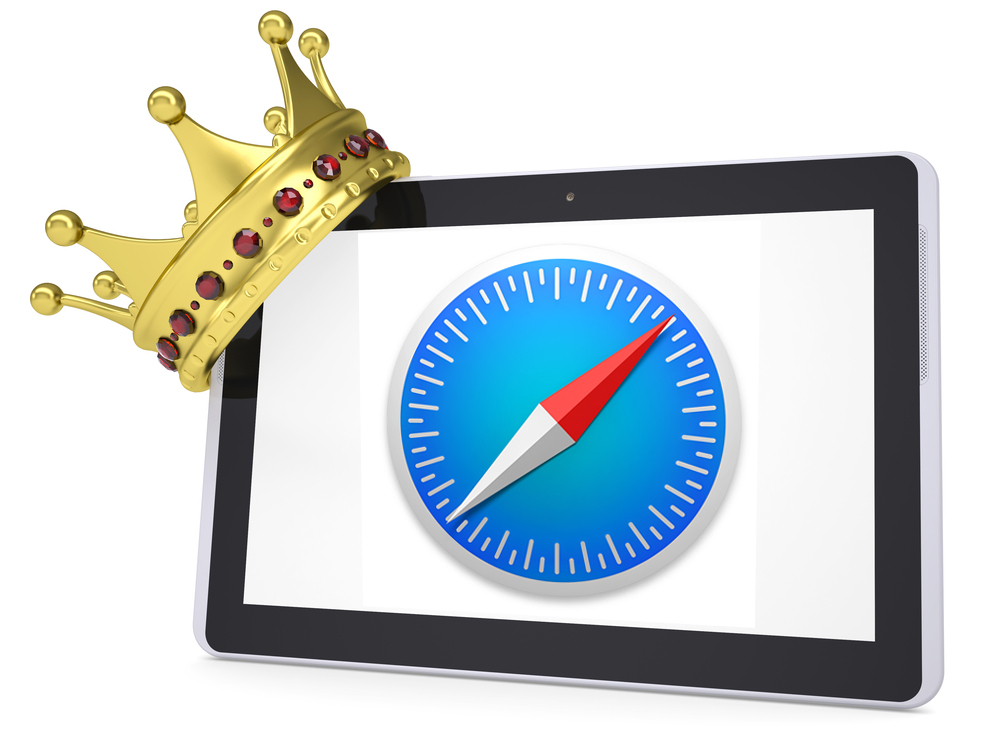Safari is king of the mobile browsers -- which could be bad news for Google

Google’s dominance of the web is best illustrated by Mobilegeddon. The search giant has made changes to its algorithm, prioritizing sites that are "mobile friendly" and demoting those that aren’t. Google says that mobile-friendliness is just one of 200 signals that it uses to determine the ranking of results and that sites which don’t have mobile versions won’t disappear as a result of this change. That said, the truth is if Google says you need a mobile site -- that it approves of -- then you need a mobile site.
But while Google is forcing sites to offer mobile friendly versions or suffer the consequences, it’s Apple’s browser that the majority of people are using to access the web while on the go.
According to independent website analytics provider StatCounter, Apple’s Safari browser accounted for over half of US mobile and tablet internet usage in March.
In that month Safari took 55 percent share, followed by Chrome on 29.9 percent and Android on 9.5 percent. Safari on the desktop is a far less potent force, with just 10.5 percent usage share.
Google is currently the default search engine in Apple’s browser, but if it wasn’t -- if Apple decided to end its default search deal with Google and get into bed with Bing, or more likely Yahoo -- that could have a major impact on Google’s mobile search share.
iPhone/iPad users are far less likely than Android users to change the default search engine in their browser (and far less likely to change their browser), so the impact on Google would be much greater than it experienced as a result of the recent Yahoo/Firefox arrangement that saw Google replaced as the default search engine in the US version of Mozilla’s browser.
Yahoo’s CEO Marissa Mayer has made it clear that she views search as an important area for the company, and although Yahoo renewed its longstanding search deal with Microsoft last week, the new terms allow either company to walk away from October 1 onwards. While there's no indication that either firm intends to initiate a break up, it's interesting how easy it would now be for that to happen.
If Apple decides to look for a new search partner in Safari, then Yahoo would be the perfect fit. Apple could, of course, consider creating its own search engine but getting into bed with Yahoo would make more sense -- especially given how badly its attempt at replacing Google Maps with its own mapping service went three years ago. Apple has lots of cash, while Yahoo, which sees mobile as its future, just reported worse-than-expected profits for the first three months of this year. The stars are aligning...
This is all speculation, of course, and wild speculation at that. There’s no question Google values mobile, and it wouldn’t let its search deal with Apple end anywhere near as easily as its one with Firefox did. Would it?
Image Credit: cherezoff/ Shutterstock
